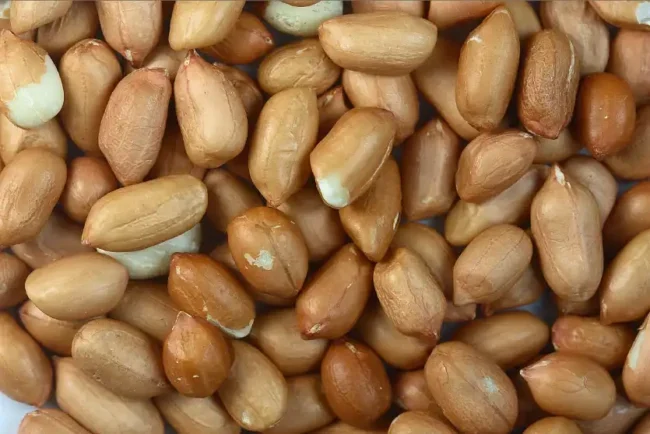Peanuts can indeed be a helpful addition to a weight loss diet when consumed in moderation and as part of a balanced eating plan.
Here’s how peanuts can contribute to weight loss:
- Rich in Protein: Peanuts are a good source of plant-based protein. Protein helps to increase feelings of fullness and satiety, which can help reduce overall calorie intake. Including protein-rich foods like peanuts in your meals and snacks can help control hunger and prevent overeating.
- High in Fiber: Peanuts are also high in dietary fiber, which aids in digestion and helps keep you feeling fuller for longer periods. Fiber slows down the emptying of the stomach, which can help control appetite and reduce cravings for unhealthy snacks between meals.
- Healthy Fats: Despite being calorie-dense, the fats in peanuts are mostly monounsaturated and polyunsaturated fats, which are considered heart-healthy fats. These fats can help improve cholesterol levels and promote cardiovascular health. Consuming moderate amounts of healthy fats can also contribute to feelings of fullness and satisfaction, reducing the likelihood of overeating.
- Nutrient Density: Peanuts are not only rich in protein and healthy fats but also contain a variety of essential vitamins and minerals, including vitamin E, magnesium, phosphorus, and potassium. Incorporating nutrient-dense foods like peanuts into your diet ensures that you’re getting essential nutrients while managing your calorie intake.
- Satiety and Snacking: Snacking on peanuts or peanut butter can be a satisfying and nutritious option between meals. Opting for a small serving of peanuts as a snack can help curb hunger and prevent mindless snacking on high-calorie, low-nutrient foods.







